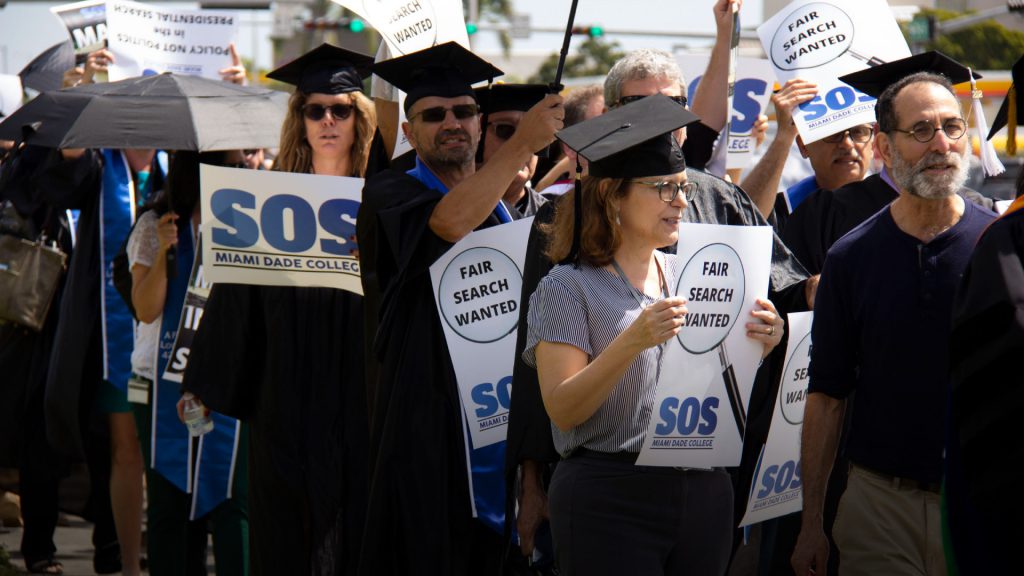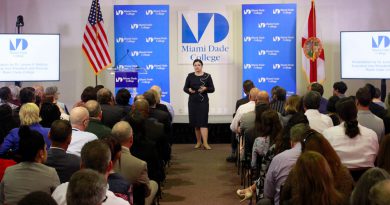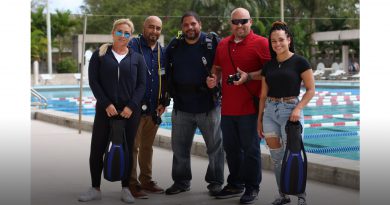MDC Professors Protest Presidential Search, Say ‘Its The Death Of Education’
Carrying a wooden coffin down 104th street in front of Kendall Campus, a conga line of professors protested what they feel is a lack of transparency in the College’s search to find its fifth-ever president on March 5.
Decked out in black graduation regalia, they chanted “we demand transparency,” and “we are the people’s college.” Some hoisted signs that read, “R.I.P, Here lies the integrity of the presidential search at Miami Dade College.”
“We feel that it’s the death of education,” said Juan Carlos Martinez, the Wolfson Campus vice-president of the United Faculty of Miami Dade College—the College’s faculty union that organized the protest.
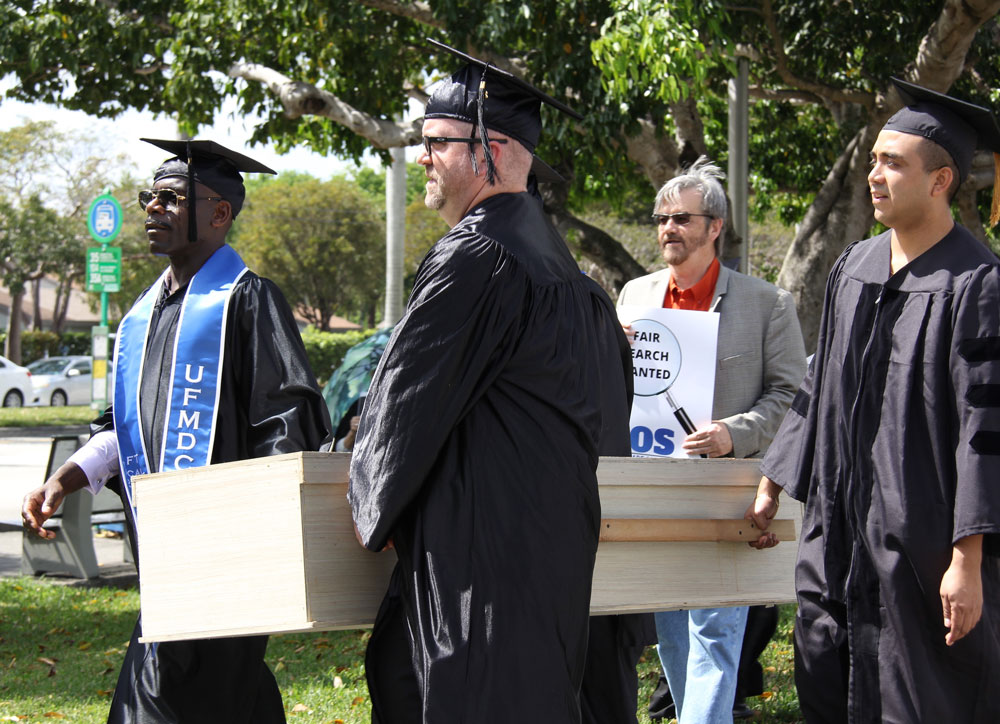
HEIDI PEREZ-MORENO/THE REPORTER
The search to find Eduardo J. Padrón’s successor started last February, but was scrapped five months later after the Board of Trustees decided the candidate pool was too narrow on the same day they were scheduled to make a decision. The decision sparked controversy, and a second hunt— spearheaded by AGB Search—began in September.
As of Monday, 15 candidates have applied for the position. Eleven of them come from academia, and the other four candidates come from diverse fields like business, medical, energy management and engineering world.
None of the candidates currently serve as the president of an educational institution, but John Frederic Garman ran Berkeley City College in California from 2001 until 2006. The school has just over 6,400 students. Another candidate, Efrain Vasquez-Vera, formerly served as president of the Humacao Campus at the University of Puerto Rico from 2014 to 2016. The campus has more than 4,700 students.
By comparison, one of Miami Dade College’s smallest campuses, the Eduardo J. Padrón Campus has 6,500 students.
Faculty believe a big part of the problem is that the new search does not include enough faculty representation on the 17-person search committee—only two, the last search led by Diversified Search had three— and is tailored for candidates outside the educational sphere because a terminal degree is a preference, not a requirement.
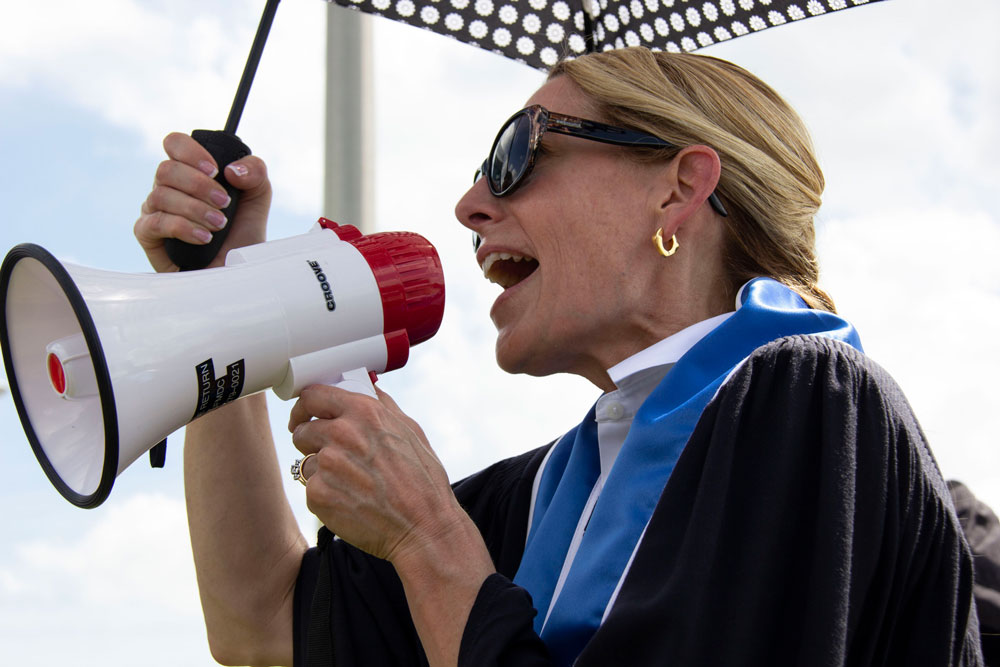
HEIDI PEREZ-MORENO/THE REPORTER
“We started with such high hopes looking for our next leader for the College,” said Elizabeth Ramsay, president of UFMDC. “Now, the lack of any academic credential or any higher ed administrative experience [for candidates] seems to mark the end of an era of academic excellence.”
That is a drastic shift from the initial search, which required candidates to have a doctoral degree and a decade’s worth of senior-level management experience, and at least six years of experience in academia.
AGB Search facilitated three hour-long listening sessions between students, faculty and administrators to aid in the search. Professors began raising concerns about the process during a listening session at Wolfson Campus on Jan. 17.
“There’s a basic disconnect right now between faculty and the search process,” Ramsay said in an interview with The Reporter, a day after the meeting.
According to sources, the meeting was tense. Faculty felt they were invited under false pretenses. The invitation to the meeting said it was an opportunity to comment on the search, and discuss challenges facing MDC. The firm, however, used notes from the meeting to craft the College’s extended profile.
“I think they heard the words we were saying, but I don’t think they took it to heart,” said Steve Kronen, a librarian at West Campus.
Rod McDavis, managing principal at AGB Search, said the faculty’s grievances were passed along to Trustee Nicole Washington, who chairs the search committee. The Reporter obtained AGB Search’s notes from the meeting, which mentioned the faculty’s complaints. However, those complaints were not listed on the notes that AGB Search gave Washington.
So What’s Next?
The priority deadline for candidates to apply is March 23. Three days later, the search committee will select eight to 10 semifinalists during a meeting at Wolfson Campus and semi finalists will be interviewed on April 23-24.
However, candidates can apply after the March 23 priority date. Under that scenario, Washington would determine if the committee reviews the candidate.
Judith Wilde, chief operating officer of the Schar School of Policy and Government at George Mason University, said the maneuver could be a way to sneak applicants in at the last minute without public scrutiny.
“It’s a way to get around the [Florida] Sunshine Law,” said Wilde, who is working on a research study at GMU that examines secret presidential searches at colleges and universities.
The BOT will interview finalists on May 13-14. Trustees are expected to select a new president by May 19. The president is expected to start by July.
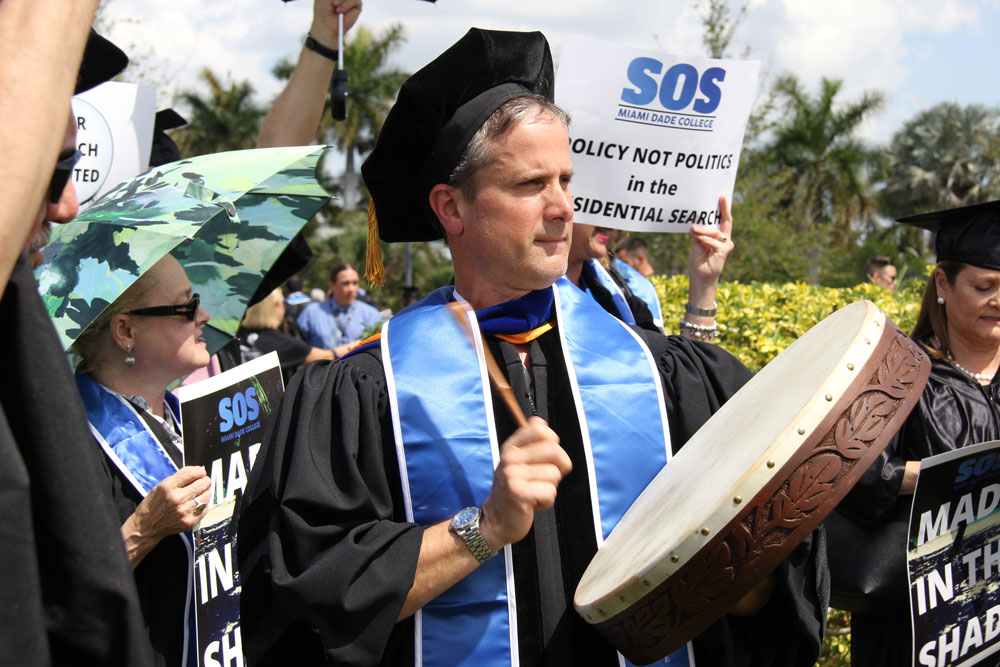
HEIDI PEREZ-MORENO/THE REPORTER

